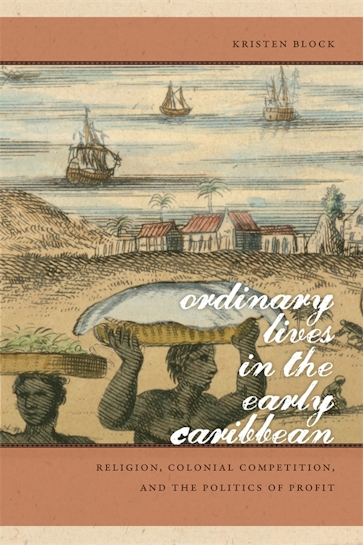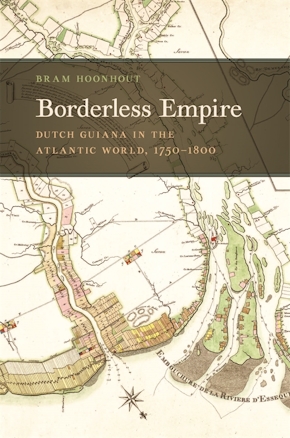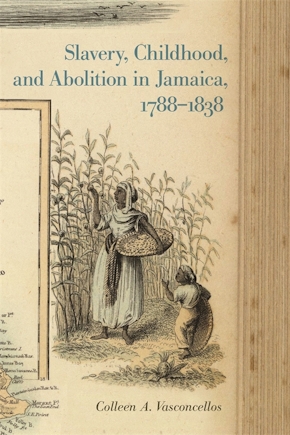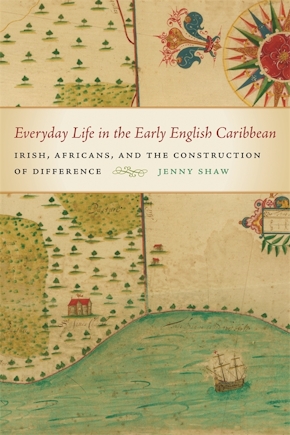Ordinary Lives in the Early Caribbean
Religion, Colonial Competition, and the Politics of Profit
Title Details
Pages: 328
Illustrations: 15 b&w photos
Trim size: 6.000in x 9.000in
Formats
Paperback
Pub Date: 06/01/2012
ISBN: 9-780-8203-3868-2
List Price: $34.95
Hardcover
Pub Date: 06/01/2012
ISBN: 9-780-8203-3867-5
List Price: $120.95
eBook
Pub Date: 06/01/2012
ISBN: 9-780-8203-4375-4
List Price: $34.95
Series
Subsidies and Partnerships
Published with the generous support of Andrew W. Mellon Foundation
Ordinary Lives in the Early Caribbean
Religion, Colonial Competition, and the Politics of Profit
Skip to
- Description
- Reviews
Kristen Block examines the entangled histories of Spain and England in the Caribbean during the long seventeenth century, focusing on colonialism’s two main goals: the search for profit and the call to Christian dominance.
Using the stories of ordinary people, Block illustrates how engaging with the powerful rhetoric and rituals of Christianity was central to survival. Isobel Criolla was a runaway slave in Cartagena who successfully lobbied the Spanish governor not to return her to an abusive mistress. Nicolas Burundel was a French Calvinist who served as henchman to the Spanish governor of Jamaica before his arrest by the Inquisition for heresy. Henry Whistler was an English sailor sent to the Caribbean under Oliver Cromwell’s plan for holy war against Catholic Spain. Yaff and Nell were slaves who served a Quaker plantation owner, Lewis Morris, in Barbados. Seen from their on-the-ground perspective, the development of modern capitalism, race, and Christianity emerges as a story of negotiation, contingency, humanity, and the quest for community.
Ordinary Lives in the Early Caribbean works in both a comparative and an integrative Atlantic world frame, drawing on archival sources from Spain, England, Barbados, Colombia, and the United States. It pushes the boundaries of how historians read silences in the archive, asking difficult questions about how self-censorship, anxiety, and shame have shaped the historical record. The book also encourages readers to expand their concept of religious history beyond a focus on theology, ideals, and pious exemplars to examine the communal efforts of pirates, smugglers, slaves, and adventurers who together shaped the Caribbean’s emerging moral economy.
Based on both a wide-ranging scholarly literature and a broad and deep archival base, Ordinary Lives in the Early Caribbean raises important questions about the relationship between Christianity and profit seeking in the early modern Atlantic. Block’s use of personal stories to advance her arguments allows her to address big questions with a clarity and specificity that should appeal to undergraduates and specialists alike.
—April Lee Hatfield, author of Atlantic Virginia: Intercolonial Relations in the Seventeenth Century
Kristen Block's case studies of ordinary men and women in the Caribbean, and her creative use of the fragmentary sources they left, illuminate the ways in which they negotiated the spaces within and between empires, and their use of religious identification in those negotiations. By taking religion seriously and looking across colonial empires, she has produced a study that will be must reading for everyone interested in the early modern Atlantic.
—Karen Ordahl Kupperman, Silver Professor of History, New York University
Block enhances our appreciation of how religion was manifest in the lives of ordinary Caribbean sojourners by drawing upon an expanded archival base and by imaginatively re-creating the world of her subjects.
—Carla Gardina Pestana, William & Mary Quarterly
Block’s study is based on a very impressive archival base, and she narrates the stories with skill.
—M. Mulcahy, Choice
Overall, Block’s work provides a unique window into the conflict between increased commerce and religion in the seventeenth century. The dual focus on Spanish and British colonies creates an excellent comparison of how Protestantism and Catholicism dealt with similar issues of race, slavery, and social control.
—Robert C. Schwaller, The Americas
In this innovative work, Kristen Block uses the life stories of a handful of individuals to create an entry into the religious realm of the early Caribbean. . . . Individual experience is commonly complex, flawed, and contradictory, as wonderfully exemplified by the people brought to life in Block’s excellent book.
—B. W. Higman, American Historical Review



